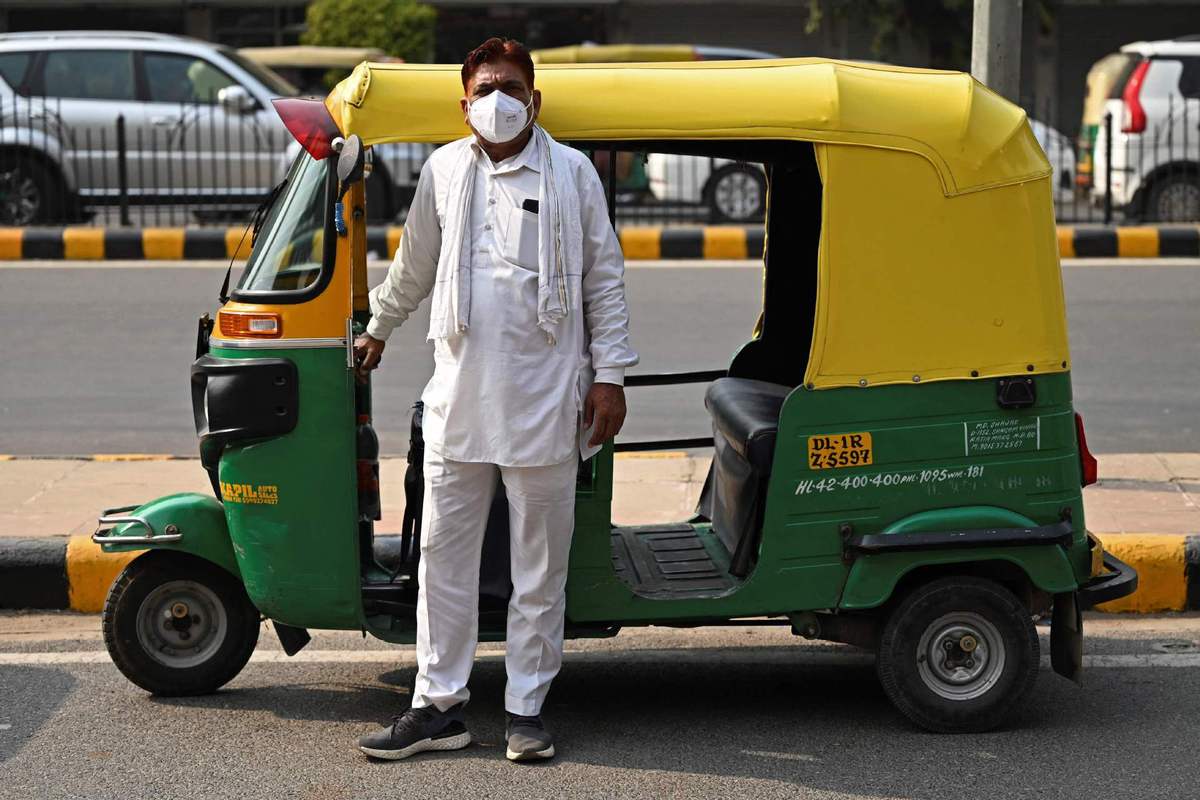
In this photograph taken on Nov 18, 2021, auto rickshaw driver Bhanjan Lal poses next to his auto rickshaw on a street in New Delhi. (Photo: Agencies)
With South Asia on heightened alert against the Omicron variant of the coronavirus, experts are highlighting the need for more vaccinations and collaboration among countries in the region.
"The emergence of the Omicron variant has reiterated the importance of international cooperation and its impact when we disregard it," said Dicky Budiman, an epidemiologist at Griffith University in Australia.
"Asia should learn from previous Delta waves that viruses do not respect borders," he said. "A global problem like a COVID-19 pandemic requires a global solution, and it is the responsibility of every country to prioritize public health collaboration."
Takeshi Kasai, the World Health Organization regional director for the Western Pacific, on Friday advised Asia-Pacific countries to boost their healthcare capacity in the face of the variant instead of relying on border controls.
India's tally of infections caused by the Omicron variant had risen from five on Sunday morning to 21 that night.
Sri Lanka's Health Ministry on Friday reported its first infection resulting from the variant. In late November, the country suspended the arrival of foreign travelers who had been to any of six countries in Africa.
Bangladeshi Minister of Health and Family Welfare Zahid Maleque has called the variant aggressive. In late November, the country moved to keep out travelers from South Africa.
Amid the Omicron concerns, the country on Thursday achieved the milestone of administering more than 100 million vaccine doses. More than two-thirds of the doses have come from Chinese drugmaker Sinopharm.
A sixth batch of donated doses from Sinovac Biotech, another Chinese drugmaker, arrived in Dhaka in late November. The earlier rounds of the donations of the Sinovac vaccine began in May, the Chinese embassy in Bangladesh said.
'Of immense help'
Mushtuq Husain, an adviser to the Bangladeshi Ministry of Health, said that China's contribution has been of immense help to Bangladesh in sustaining its mass inoculation drive and ensuring lower mortality rates in any future wave of infections.
Muzaherul Huq, a former adviser to the WHO for Southeast Asia, told Xinhua: "We're grateful to the Chinese government and the Chinese people. The vaccines have helped us achieve herd immunity, something we could not have done alone. (The) infection rate has fallen steeply."
On Nov 20, Bangladesh reported no deaths from COVID-19 for the first time since April 2020. Infections and deaths have fallen significantly in recent months as vaccinations increased.
"Despite increasing nationalism and declining support for multilateralism during the COVID-19 pandemic, we have seen that regional collaboration is vital to tackling contemporary challenges," said Budiman.
Maldivian President Ibrahim Solih said his country would begin administering COVID-19 booster shots this month, state-owned PSM News reported.
Zakia Latif, associate professor at the Institute of Microbiology and Molecular Genetics at the University of the Punjab, Pakistan, said it is likely Omicron "can breach the immunity built up by the previous infection or even vaccination".
Although Omicron has not been detected in Pakistan, the government has begun giving boosters to priority groups.


